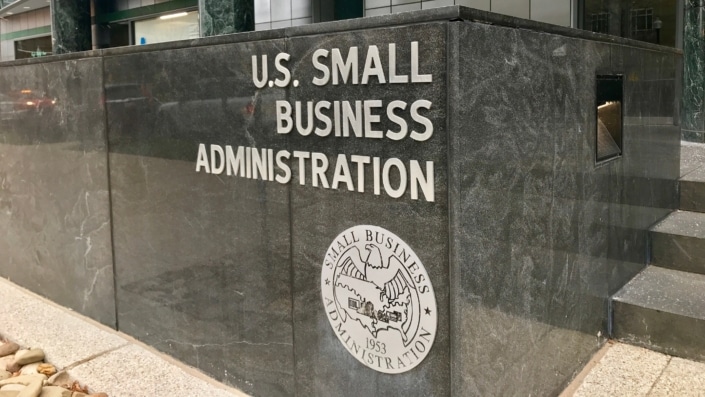Types of Small Business Loans and How to Choose One
If you’re ready to take on a loan or any other type of financing for your small business, you should give yourself a pat on the back. That usually means that your business has grown to the point where you’re ready to take on additional growth opportunities or you just need funding to keep your operations running smoothly. Before you get that business loan, however, one of the most important questions you need to ask is, ‘what type of financing should I get?’
Various types of small business lenders offer an array of loan options and other financing products for different purposes, and it’s crucial that you determine which product best suits your needs as a small business owner. While nobody really wants to pay interest, each financing option will offer a different cost of capital. There are also those that offer different repayment terms, while there are still others that are designed to fund specific business needs.
What types of loans are there and which one is best for you? You have an array of options, and which one you choose should depend on how you plan to use the funds, your business and personal credit scores, as well as the loan amount you’re seeking.
Types of Business Loans
Here are the different types of small business loans you can seek for your small business and how they can help you the most:
Term loans.
Term loans are offered by both traditional banks and alternative lenders. It is a large chunk of money that you receive all at once and agree to pay back over time with interest. The proceeds of a term loan (also called a bank loan) typically must be used for a specific purpose, such as expanding your business, developing and marketing a new product, or consolidating debt.
Traditional banks usually offer slightly lower interest rates than alternative lenders, but often demand that you have a good to excellent personal FICO and business credit score. The application process tends to be longer and more complicated than alternative lenders, and the funds may take days or weeks to be delivered to you. Alternative lenders typically charge higher interest rates but offer a simpler application process, typically have less stringent qualification requirements, and can deliver funds to you in as little as a day.
Small Business Administration (SBA) 7(a) loan
SBA 7(a) loans are essentially term loans given out by both traditional and alternative lenders, while the US Small Business Administration guarantees a large portion of them and sets the general borrowing requirements for small business owners. These loans typically offer the best interest rates when it comes to term loans, but come with a long list of requirements such as an excellent FICO (680 and above) and a business (80 or above) credit score. Also, it may take weeks to actually obtain the funds.
Working capital loan
These loans are typically offered by online lenders and typically don’t require a personal FICO or business credit score as high as a term loan. They are usually meant for small businesses with seasonal or uneven cash flows throughout the year that need to keep operations going during the offseason or when there’s a downturn in the economy. Depending on the borrower’s credit score, the interest rate can be very high.
Non-Recourse Loan
Non-recourse loans are often used in commercial transactions in which the real estate itself acts as collateral. In a non-recourse loan, the lender may only seize the collateral in the event of default or bankruptcy, even if the collateral does not equal the full value of the loan. A non-recourse loan, in rare cases, can also be applied to a secured term loan.
Lenders usually offer this type of loan with strict requirements, such as a very high credit score or performance guarantees. The SBA also offers some non-recourse loans through intermediary lenders, which also usually carry exceptionally strict requirements.
Commercial Real estate loan
If you’re a small real estate company seeking to invest in a property or a small business owner who’s decided that it’s in your best interest to purchase the property from which your business operates, a commercial real estate loan is your best option. It is essentially a commercial mortgage from a traditional bank in which the property being acquired becomes the collateral, so your credit score may not matter as much as your business plan.
SBA Microloan
An SBA microloan is offered through intermediaries, many of which are not-for-profit and are geared towards young small businesses (at least 6 months in operation) and carry fewer requirements and lower interest rates than bank loans. In some communities, these loans are offered exclusively to women- and minority-owned businesses, or small businesses operating in underserved communities. The maximum loan amount is $50,000 with the average amount in 2022 being slightly less than $17,000.
SBA CDC/504 loan
Like the SBA Microloan, these loans are typically offered through not-for-profit intermediaries and are typically granted to small businesses for the purpose of enhancing their communities through storefront renovation and increasing local hiring. They can also be used for land acquisitions and equipment purchases, and carry less strict requirements than bank loans. Unlike the SBA Microloan, they do offer larger amounts, with the maximum being $5 million.
Equipment loan
An equipment loan, commonly referred to as equipment financing, is just that: a loan that pays for the entirety of a piece of revenue-producing machinery (such as a business vehicle, tractor or manufacturing equipment) for your business. This is offered directly by traditional banks and alternative lenders. This type of loan usually offers an interest rate that is less than a bank loan, depending on the credit score of the borrower, since the machinery purchased acts as collateral for the loan. The catch is that the interest rate on this loan will usually be higher than if you went directly to a dealer and financed that equipment. However, if you buy directly from a dealer, you usually have to make a large down payment.
Non-Loan Business Financing Options
While there are a lot of different types of business loans, there are also financing products that are not technically considered loans, even though they involve lenders giving money to businesses in exchange for the principal and an interest rate or “factor” fees. These types of financing products can come in handy for specific purposes and sometimes can be more convenient than traditional loans.
Business Line of Credit (BLoC)
A business line of credit, offered by traditional banks and alternative lenders, gives your small business a predetermined amount of debt to draw upon for any business need. While conceptually similar to a credit card in that way, there are many differences. A BLoC often offers a lower interest rate than a business credit card but doesn’t offer rewards of any kind. Additionally, a BLOC has to be renewed, sometimes on an annual basis. It often has minimum withdrawal amounts; penalties for non-use and repayment terms that include full payment at various intervals.
BLoCs, however, are very flexible financing tools for a small business owner – the money can be used for any purpose at any time, including meeting payroll during the offseason or for purchasing additional inventory when customer demand unexpectedly swells.
Revenue Based financing (RBF)
RBF is a contract-based financing tool typically offered by alternative lenders. A lender will give a lump sum of money to a small business owner in exchange for a predetermined percentage of the business’ future receipts. The contract is based on a factoring model, which means that the portion of each receipt will be factored as a percentage to give to the lender or factoring company.
While this is usually a more expensive form of financing than a loan, RBF can be very useful if a small business owner comes across an unexpected growth opportunity or an emergency business expense. One positive is that factoring companies usually don’t consider your credit score as the most important qualifier when deciding to do business with you.
Invoice Financing
Often referred to as invoice factoring, this is a financing tool in which an alternative lender gives you money upfront for your unpaid invoices. The money upfront will be slightly less than the combined value of the invoices, but this type of financing enables small business owners to unburden themselves of the risk of slow-to-pay customers never paying. The potential drawback is that the small business owner may be forced into a longer contract than desired, and depending on the terms of the contract, may be on the hook for a portion of the money if the customers never pay their invoices.
Purchase Order Financing
Let’s say your small business receives a large order from a major retailer. However, the cost to produce this order is beyond your reach right now or you’re just not comfortable using up that much of your available cash flow to fulfill the order. This is where purchase order financing, another type of factoring product, can be incredibly useful.
With purchase order financing – usually done through an alternative lender – the lender will pay your suppliers upfront for inventory in exchange for a small percentage of the purchases being made, which are referred to as factoring fees. While this can be a bit expensive compared to other types of loan products, the cost of purchase order financing is covered by the amount you would be paid when fulfilling the order. While it may eat into your profit a bit, that is profit you wouldn’t have had if you had to turn down the order due to a lack of inventory. Additionally, high credit scores on your end will not be a requirement for this type of financing because the credit that is taken into account is the credit of your customer that made the purchase order.
Consider a Checklist to Help You Select the Right Business Loan for You
Choosing from the different small business loans available to grow your small business, meet unexpected expenses, or keep your business running smoothly is one of the most important decisions you need to make as a small business owner. Before applying, you should go down a fundamental checklist of questions you should answer before seeking financing:
- Why do I need financing/what will the money be used for?
- How much am I willing to pay for business financing?
- Which types of financing are most convenient for me in terms of how I can use the money and how quickly will I receive it?
- Which financing products am I most qualified for?
- Do I have a realistic plan for making loan payments or paying the factoring fees?
- Does my current cash flow justify taking on financing?
Answering these questions beforehand will help you make the wisest decision possible on what type of financing you need, what financing you’re able to afford, and will – ultimately – help your small business flourish in the long run.




